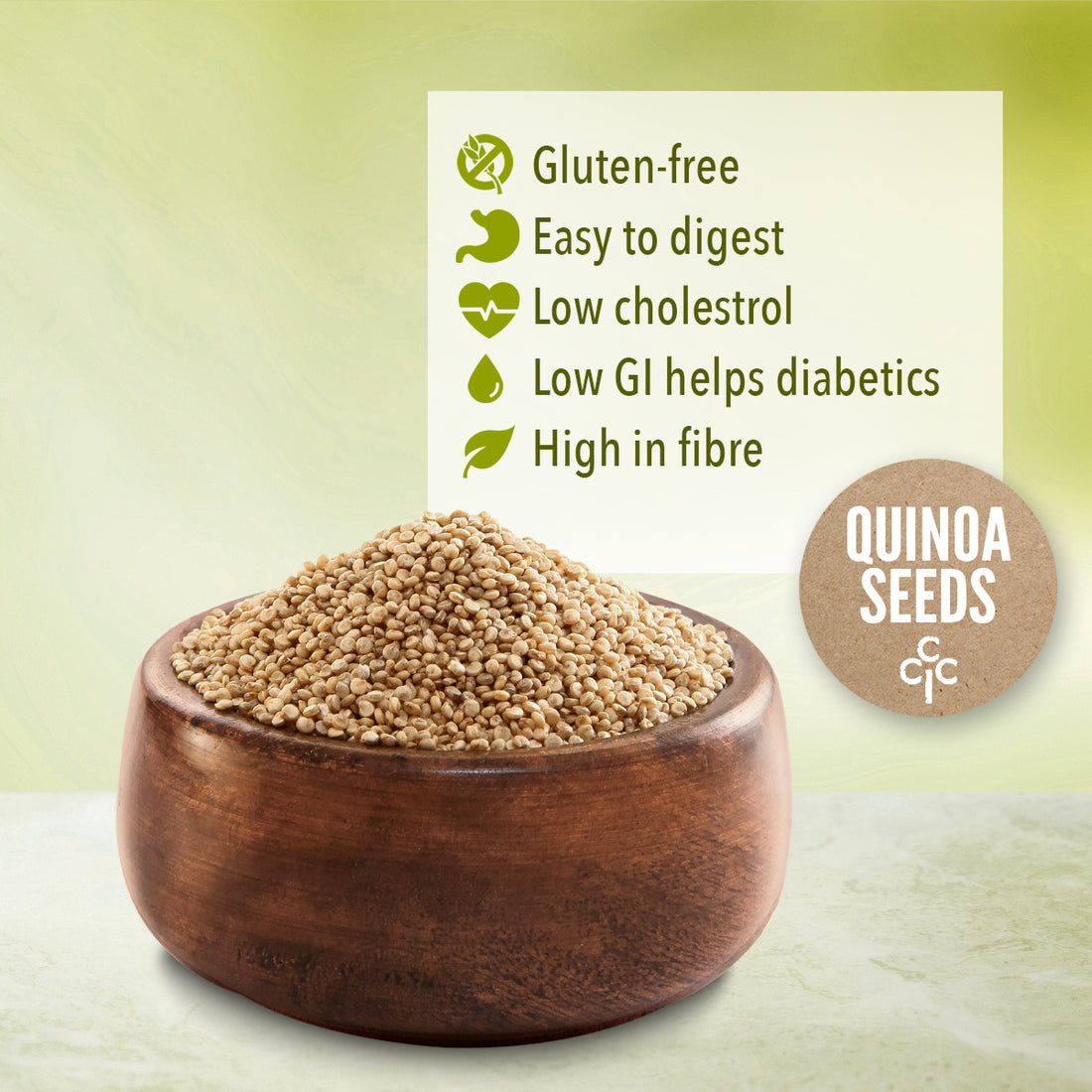There was a time when rice was the only grain in town. Not anymore. Quinoa has emerged as a healthier alternative and has taken the place of rice in many recipes. They're both staples in stir-fries and are also popular as side dishes. But one shines brighter than the other when it comes to your waistline and overall health. White rice may star in meals all around the world, but when it comes to nutrition, quinoa wins the contest.
Even though you might have become familiar with quinoa over the past decade, it was first grown in South America 5,000 years ago.
It’s often referred to as a whole grain, though that’s not entirely accurate. “It is technically considered a seed, but it has similar nutritional and culinary properties as rice and other grains, so we consider it a grain from that perspective,” says Julie Andrews, RDN, a chef based in Appleton, Wisconsin.
Counting Calories and Vitamins
Both quinoa and white rice have a similar number of calories per 1-cup serving — 222 calories versus 206 calories respectively. But when it comes to other health benefits, there’s a stronger contrast.
According to the American Heart Association, white rice is a refined carbohydrate. That means it’s been processed, and key nutrients, such as fiber and B vitamins, have been stripped along the way. Quinoa maintains those nutrients. It is considered to be a whole grain that contains all its parts — the endosperm, bran, and germ. Hence, it provides more vitamins, minerals, and fiber than refined grains like white rice.
Quinoa Is a Complete Protein
Quinoa is a protein powerhouse and contains more protein than white rice and other grains. While most plant-based foods are incomplete proteins, quinoa qualifies as a complete protein source, which means it contains all nine essential amino acids that the body needs but cannot make on its own.
White rice, on the other hand, is not a complete protein source. One cup of quinoa contains 8 grams (g) of protein, which is double the protein available in the same amount of white rice.
Including substantial protein in your diet is mandatory - it helps in the maintenance and growth of your skin, blood, muscle, bone, and cartilage health, among other critical functions, per the USDA. Fueling up with protein is also a good idea if you’re looking to lose weight. It can help with appetite control and weight management, according to a study published in June 2015 in the American Journal of Clinical Nutrition.
Quinoa Can Help Keep You Fuller for Longer
One cup of quinoa contains 5 g of fiber, a significant jump from white rice’s 0.6 g. It also keeps your digestive system humming and can help you manage your weight. Fiber can help keep you full and satisfied, stabilize blood sugar, and lower cholesterol levels.
You Get a Dose of Healthy Carbs From Quinoa
Quinoa and white rice have similar amounts of carbohydrates — 39 g and 44 g per cup, respectively. But the quality of carbs differs greatly. You may have heard of carbs being referred to as “good” or “bad” before — that’s related to where each food falls on the glycemic index (GI), which measures how the food affects blood glucose levels.
You want to maintain steady blood sugar levels because letting them run high is linked to an increased risk for a host of negative health effects over time, including weight gain, type 2 diabetes, and heart disease.
Quinoa Can Better Enhance the Nutrient Profile of Gluten-Free Diets
Quinoa is naturally gluten-free and can be a great source of nutrition for those with celiac disease or gluten intolerance. It’s a better choice than white rice, which is also gluten-free, because it provides more key nutrients. Past research has suggested gluten-free dieters chose white rice as their main grain 38% of the time and yet faced nutritional deficiencies.
To help you make the switch easily, check out our organic and wholesome bag of Quinoa Seeds, and order them today!
If you enjoyed reading about quinoa, here are some interesting facts about chia seeds :
https://www.consciousfood.com/blogs/conscious-cookbook/we-re-a-chia-cheerleader-here-is-why
Written by Divita Aggarwal (Weloquent)






